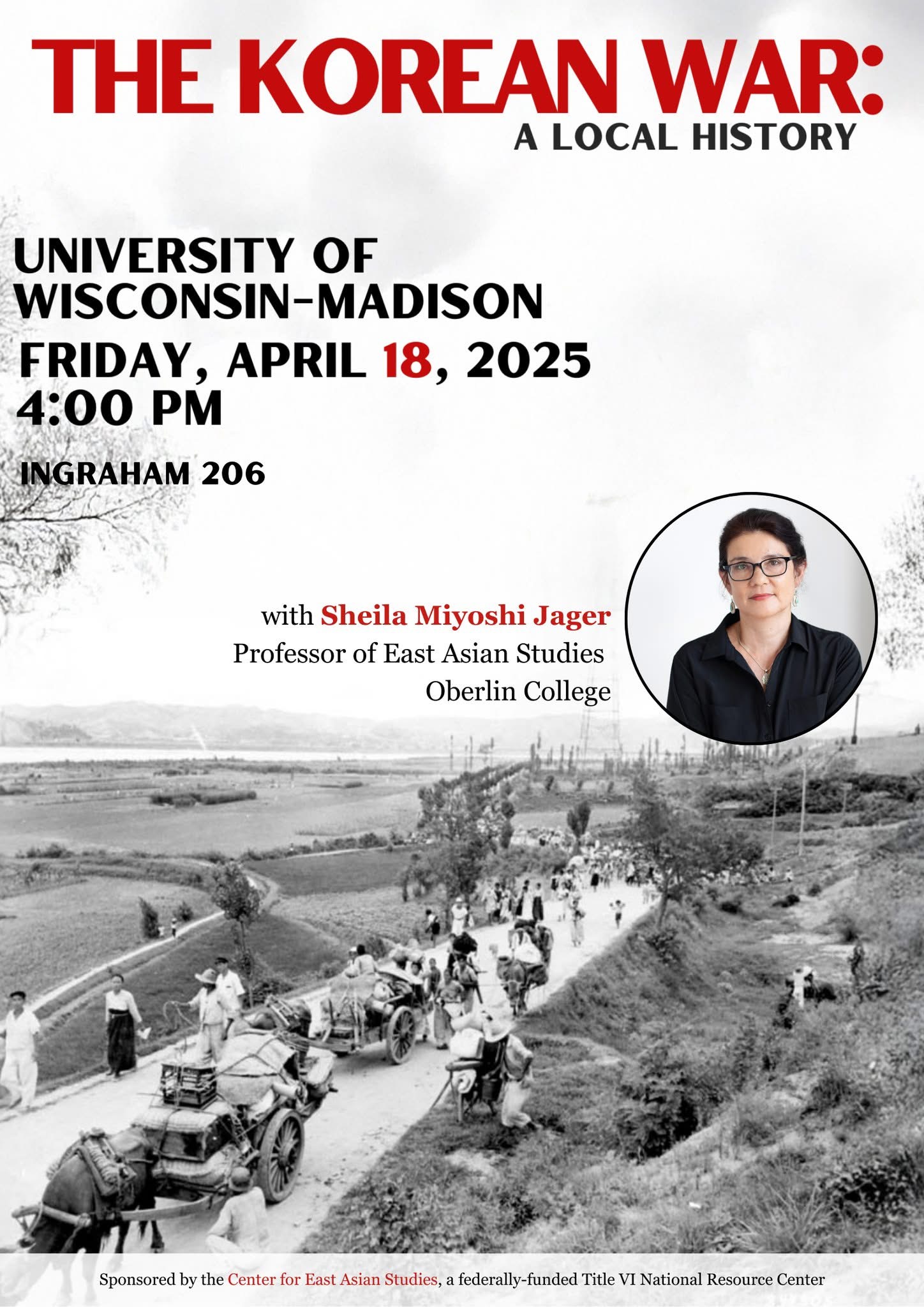time zone will be applied.
Report this post?

This talk will take place in Ingraham 206.
Between 1945 and 1949, an estimated 600,000 to 4.5 million northern Koreans—including repatriates from Manchuria and China—crossed the 38th parallel into the South. Even conservative estimates suggest that around 900,000 people, or 10 percent of the northern population, fled during this period. By 1949, South Korea’s population had surged to nearly 20 million. This mass displacement introduced a strongly anti-communist and conservative right-wing element into South Korean society. Historically, Seoul had been a center of leftist politics in colonial Korea, not P’yŏngyang. The sudden influx of right-leaning northern refugees deepened ideological divisions, further polarizing the Right and the Left. These political fault lines, initially drawn at the 38th parallel by the geopolitical interests of the United States and the Soviet Union, forced Koreans into a spatial redistribution largely based on ideological allegiances. Beyond politics, this upheaval exacerbated regional, religious, and class tensions—particularly between Christians and Communists—and ignited extreme violence on both sides of the 38th parallel. However, south Korea became the primary battleground for the most intense struggles between Left and Right, beginning almost immediately after liberation. This presentation will explore how the civil conflicts between 1945 and 1949 were not merely a continuation of the legacy of colonialism, but were largely driven by the forced displacement of Koreans following the division at the 38th parallel. The experiences of those who fled south—marked by the hardships they endured under Soviet and communist Korean rule—played a crucial role in shaping the violent ideological struggles of the post-liberation period and beyond.
Sheila Miyoshi Jager is Professor of East Asian Studies at Oberlin College and is the author of several books on Korea and East Asia. Her latest book, The Other Great Game: The Opening of Korea and the Birth of East Asia (https://www.amazon.com/Other-Great-Game-Opening-Modern/dp/06749833942023), received the American Political Science Association's 2024 Robert Jervis and Paul Schroeder Award for best book in international history and politics and the 2024 Duke of Wellington Medal for Military History from the Royal United Services Institute (UK).